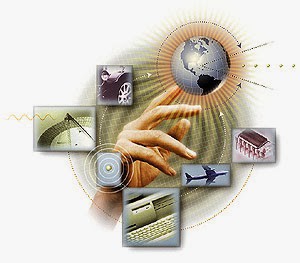5 of the Most Innovative Tech Developments 2013 and what to expect next
2013 was an extraordinary year for technological development. Forget your Google Glass and smart watches (we’ll come to those in a moment) in 2013 scientists grew a burger in a petri dish, filled hard drives with helium and invented a bionic eye. But which were the five most important tech developments of the year, and what could we expect this year as a result?
1. Wearable tech and AR
This has to be by far and away the most important development because it’s the one thing that will have the most impact on everyone’s lives, both at home and in the workplace. Wearable tech ranges from sensors in clothing to tell your boss exactly where you are at any time, through to Google Glass and smart watches. Google Glass in particular will introduce a new concept to the average person on the street – augmented reality. A device that overlays digital information in real-time will mean that all you have to do is look at something and tap your glasses and the AR will tell you about the history of that statue, or where the nearest Chinese restaurant is. Yes, there are already apps for that and you can use your smartphone to access AR, but wearable tech takes the concept to a whole new level.
2. We’ve all got our heads in the Cloud
The Cloud’s been around for a while, but 2013 was the year that it really took off and people started feeling comfortable about storing their data in some enigmatic ‘thing’ far away from their own hard-drive. The Cloud’s ability to act as a huge virtual library that can be accessed from anywhere has in turn kick-started a revolution in the way personal devices are designed. No longer do they have to have expensive memory chips, and the advertising USP of a laptop or tablet having a Gazilliobyte’s worth of memory is now redundant, because we’re all storing our stuff up in the Cloud.
3. Flexible displays
This has been one of the quiet success stories of 2013, and expect it to have a monumental impact on our hand held devices not just in 2014, but going forward for the next 20 years. Flexible displays represent a game-changer, because they make the use of heavy, very breakable glass screens a thing of the past. Companies such as Plastic Logic have been at the leading edge of flexible display technology for years, and the concept is now coming to fruition as the technology proves itself to be highly adaptable and applicable for a myriad of uses. Indro Mukerjee, CEO of Plastic Logic, recently commented: “I am delighted that Plastic Logic can now demonstrate the far-reaching potential of the underlying technology. Our ability to create flexible, transmissive backplanes has led us not only to co-develop a flexible image sensor, but is also key to flexible OLED displays as well as unbreakable LCDs.”
4. Droning on
In 2013 we all suddenly became aware of drones – those unmanned aircraft used by the military to carry out reconnaissance and, on occasion, targeted attacks. But while we may not feel comfortable with the concept of drones, they will become much more common in the coming years. Even Amazon suggested using drones to make deliveries (which immediately cued much hilarity on the Internet and a plethora of comic memes of Amazon drones being shot down by Fed-Ex surface-to-air missiles). But is the online giant’s suggestion as ridiculous as it sounds? Perhaps not, and drones could be replacing your postal delivery service in the future.
5. An end to world hunger
Well, perhaps not just yet, but the development of a ‘burger in a petri dish’ in 2013 certainly changed how we think about food production. And while lab-grown beef made from stem cells may not be appealing, it could potentially lead to further research that pushes food production in resource-poor countries to new levels.
Content Copyrighted To TechnoWorldNews.com
Latest posts by Techno World News (see all)
- 7 Key Web Design Principles To Create Impactful Web Experiences - June 20, 2024
- Why Your Small Business Needs SEO To Succeed - June 1, 2024
- Ultimate Guide to How Encoders Work: Types & Applications - June 1, 2024






